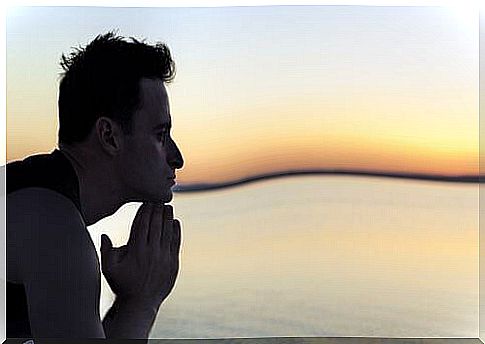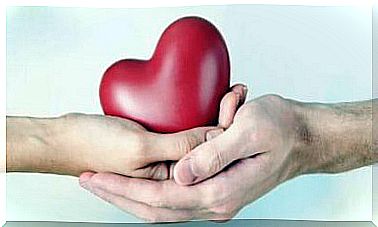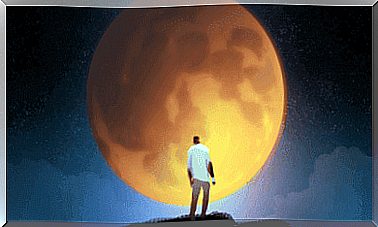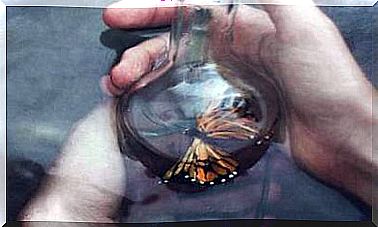Out Of Control! – When We Feel Like We’re Losing Control

Have you ever felt like everything was out of control? Have you ever wished that the world could stand still for a moment because you were feeling so incredibly exhausted right now? At one point or another we have all experienced situations in which we thought we could no longer. Our routine and the stress of everyday life are omnipresent enemies of our inner peace and balance.
If you feel that your current situation is getting too much for you, it will frustrate you and you will experience the uncomfortable feeling of fear that is sometimes expressed in anger and desperation. All of this causes your thoughts to cloud your mind, making it difficult for you to think clearly to deal with what is happening to you right now.
Given this scenario, it is important that you first understand what is happening to you before you act. Perhaps the only thing you need right now is to take a deep breath and question how you are currently doing.
Here’s a look at what steps to take when we think we’re losing control.
How fear works
Fear is a feeling that comes over us unexpectedly as soon as we find ourselves in a situation that our brain sees as a potential danger to our well-being. The function of this feeling is actually not to intimidate us, but to prepare us to act, be it in the form of an attack or an escape. That said, it basically wants to protect us.
The mechanism that triggers fear on a biological level is located in the brainstem, which regulates vital actions, and in the limbic system, which controls our emotions and maintenance functions. In addition, the amygdala is located in the latter, the structure of the brain responsible for triggering emotions such as fear and fear.

Also, from a psychological point of view, fear is an emotional state that helps us adapt to the environment and protect ourselves. However, this state is sometimes disproportionately high in relation to the situations in which we actually find ourselves. As a result, we are paralyzed or dazed and do not respond appropriately.
In addition, fear can also appear disguised as anger, sadness, and even unbridled joy. No matter what mask our fear puts on, it is important that, in order to be able to react correctly in a difficult to control situation, we first have to accept that we are afraid in order to be able to cope with it.
The feeling of losing control
As soon as you become a victim of your fear and have the feeling that everything is slipping out of your hands, everything is out of control and there is nothing you can do about what has happened, it is perfectly normal to feel frustrated and powerless. One small but important factor is that you will still think that whatever is to come must be a mess and that you can never do anything about it if your fear gets the upper hand, which increases the feeling of loss of control leads.
When you allow yourself to feel like you are losing control, you are ultimately blocking yourself.
In this situation, when we combine fear and the feeling of loss of control, we want nothing more than for the world to stop so that we can escape. The bad news is that the world cannot stand still and that circumstances will not change at our will, any more than people will. So what should we do?
There’s good news too: you can take a short break on your way. Taking a break to reflect is a very important pillar that will help you find a solution to what happened because it allows you to observe the situation from a different perspective and to look for a different, much more efficient approach.
This proposal is based on the so-called areas of influence or control. They make up a practice that is often used by human psychologists, but which is particularly related to the theoretical development of Viktor Frankl, an Austrian neurologist and psychiatrist.
What are areas of influence or control?
Control areas are a way of seeing our surroundings topographically, the influence we have on them and these on ourselves. To do this, three main areas need to be developed:
- Attention Area: This is where we have the most control. It is related to our thoughts and actions.
- Sphere of Influence : In this area we have some control, but not control over everything. This area relates to our interpersonal, family and professional relationships and the way we deal with them.
- Area of concern : We have no control over this area, but it may well affect us. The climate, the traffic, the thoughts of others etc. can have an influence on us.
So if you have the feeling that you have lost control and you wish that the world could stop turning for a moment because you want to escape it, because you can no longer handle your current situation, then stop pause for a moment and think about these areas of influence. You should try to differentiate and delimit them in order to then develop a realistic plan of action.
All of the energy you put into trying to control those areas that you have no control over is wasted energy and is sure to cause you to become anxious and frustrated.

What is the function of areas of influence?
If you start to differentiate or concretise the areas of influence and you think about how far you can get with your actions, you may notice that the situation appears increasingly less chaotic. Your blockage, which is the result of your fear in the face of the loss of control, is also automatically released.
The feeling of being out of control slowly disappears when you analyze how far your actions go and you find that you have the most control over yourself.
Most importantly, you realize that there are certain situations that you have a certain influence over, but that the end result of that situation may not depend on you. Therefore, you should devote a great deal of your energy to how you act in the face of the circumstances.
Your immediate sphere of influence – the sphere of influence over which you have the greatest control – is the influence on yourself. By devoting the greatest effort and energy to your actions, you free yourself from unnecessary burdens. If you feel that you did the right thing, even if the circumstances are not as desired, you will be less concerned about them.
So before you wish for the world to stand still, you’d better pause and realign your focus. At the end of the day, the most important thing is that you are in tune with your actions. If you think you did your best, the positive end result will come on its own.
The circumstances surrounding you are largely independent of your desire to change them. In other words, you have no control over them. What you have complete control over, however, is how much they affect you. Your thoughts and feelings are influenced by those around you, but to a large extent you determine them. This is what you should focus on.
“If it is not in your hands to change a situation that is painful for you, you can still determine the attitude with which you approach this suffering.”
Viktor Frankl









